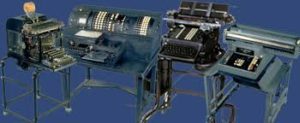Blog
7 Bookkeeping Mistakes Small Business Owners Make
Bookkeeping: BLAH! You don’t want to do the paperwork. It’s so hard to keep track of, it’s time consuming, it’s frustrating… And there are so many ways to mess it up! Here are seven things to address inside your business to get you back on track:

#1 Throwing away receipts
Unfortunately, the IRS doesn’t accept bank or credit card statements as proof that you purchased something for the business. Your receipts show what time, what day, what the item or service was, and what form of payment was made. You even need to keep your receipts from petty cash purchases! If you use petty cash for things like postage, ink cartridges, and other office supplies, they are still things that the business can expense. There should always be a “paper trail,” even if the receipts are electronic. If you ever get audited, you will have proof in hand, so to speak, to show what the purchases were for.

#2 Business owners doing the bookkeeping
This is common with start-ups, but there comes a point when you just can’t keep track of it all anymore. Doing the bookkeeping is not what you started your business for. A lot of small business owners are not interested in learning how to keep their books and run financial statements. Even if you run the statements, you may not necessarily know what they mean or what they are saying about your business. Hiring a professional can help you understand where your business stands financially and you can cut yourself out of reporting most of your financial information to your CPA.

#3 Putting off the bookkeeping
Tax time again, and those books STILL aren’t up-to-date. And where’s that receipt you need to have for the new copier? What did you do with the invoice from your utility company? Where are those tax documents you had your new employees fill out? These things and more will undoubtedly make you want to pull your hair out. You need to know these things in order for your taxes to be filed and to find out the overall health of your growing business.

#4 No backup
A desktop version of accounting software or a spreadsheet (electronic or paper) can work well for you when you are just starting out, but as your customer and vendor lists expand, so does the amount of information you need to stay on top of. It can become overwhelming when there is a serious problem with the computer software or hardware, or if a natural disaster strikes. This is why backing up your files is so important.

#5 Inaccurate reporting and payment of payroll and sales taxes
The IRS will slap you with very large fines for not paying proper payroll taxes. In some states you will be charged penalties for paying sales taxes late, and if you don’t pay them at all, you could even be charged criminally.

#6 Unaware of the difference between profit and cash flow
Just because you have a lot of cash coming in, doesn’t mean that your business is making a profit. There are a lot of costs that the overall business has, not just with each customer. Cash flow is looking at what the cash is actually doing: what exactly was purchased and for how much, where the cash went and for how much. Profit is a much more in-depth figure about how your business did over the course of a specified period.

#7 Comingling personal and business transactions
Using a personal credit or debit card for business transactions (or vice versa) is common, especially in start-ups. But does the business always get reimbursed for your Snickers bar you bought at the gas station? And does your personal account get paid back for the ream of copy paper you bought for the office? It’s hard to keep track of personal and business expenses if both accounts are being used for both purposes. It also makes it hard to know the real health of your business. Keeping business and personal finances separate is vitally important.
To get a free consultation, contact me and let’s get to work!